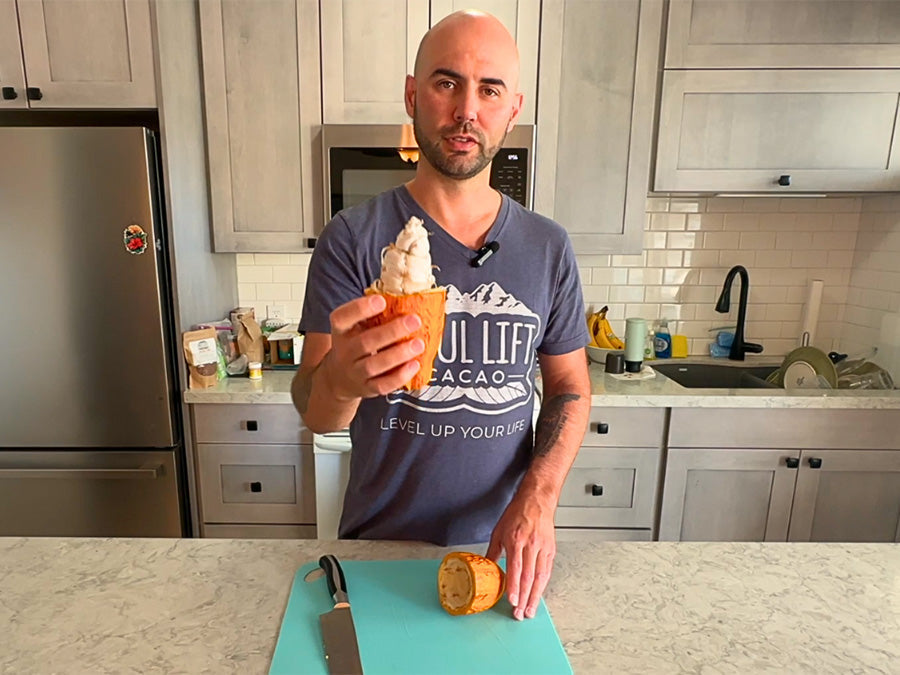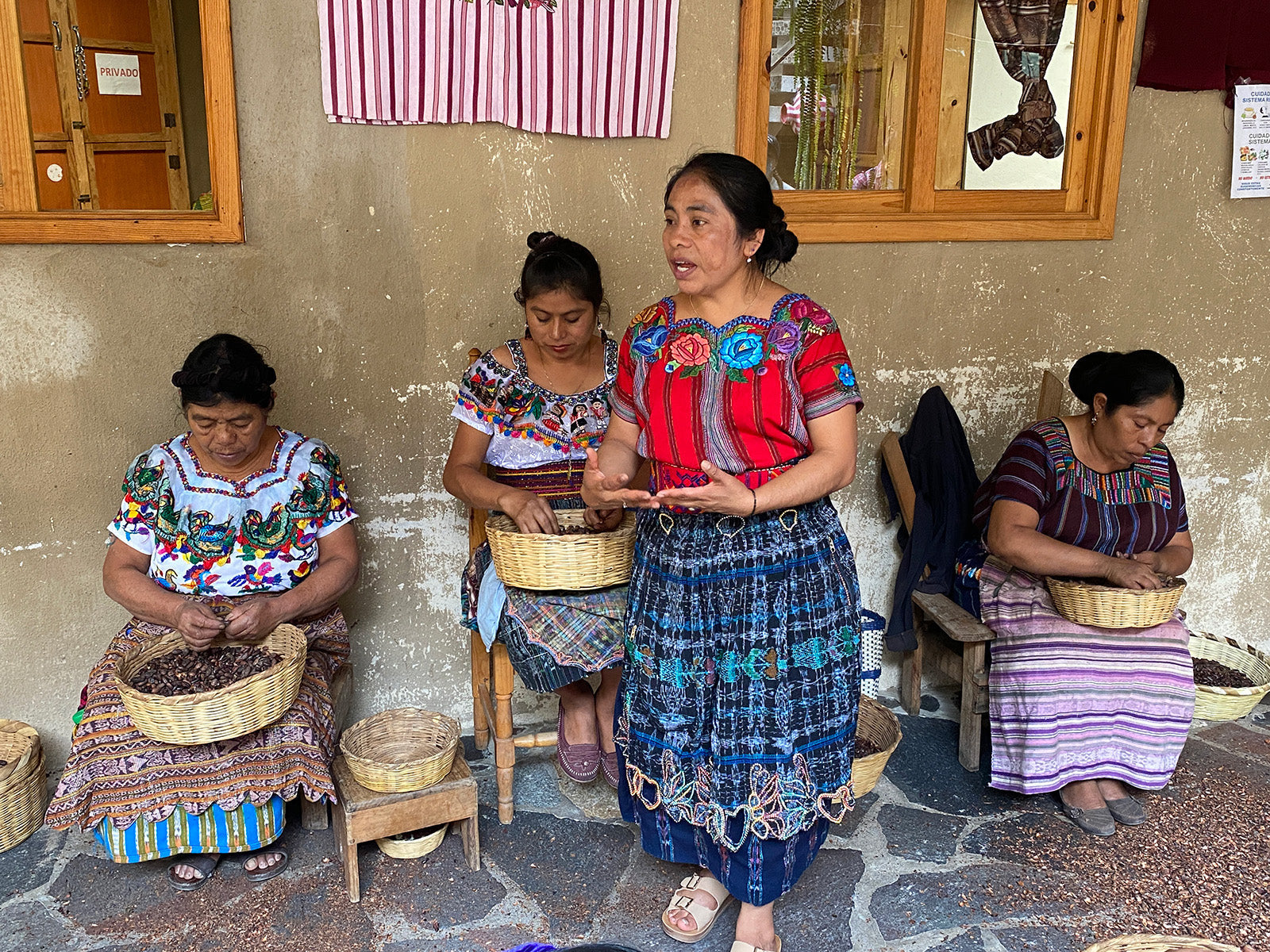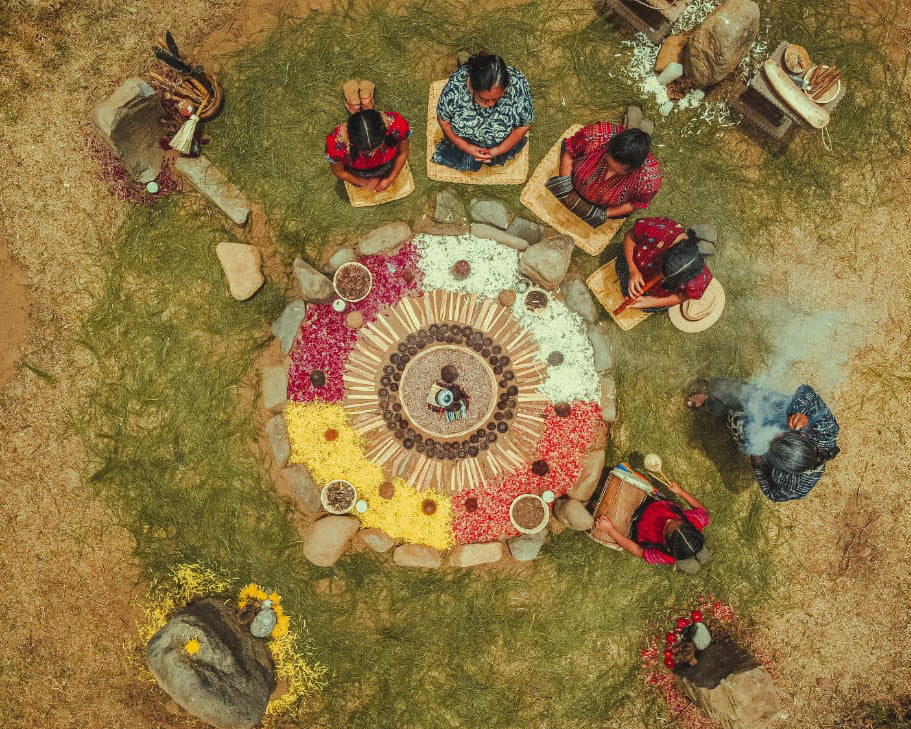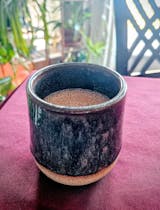The following is a contribution to an ongoing conversation about best practices for working with cacao in the modern age. (First published 10/13/2020. Last updated 12/17/2023.)
These days it can be difficult for conscientious people who feel called to share cacao to know what's the "right" or "wrong" way to do it.
The term "cultural appropriation" is still somewhat vague, especially in regard to cacao, because the "truth" about cacao as a plant ally is still coming to light and is very multi-faceted and multi-cultural.
It can help to first consider the most blatant type of offenses.
Wrongful cultural appropriation is when someone:
- Takes objects or ideas from another culture without payment and/or credit
- Uses cultural artifacts or practices in an overtly disrespectful or harmful way
Colonialism is when one nation or group uses extreme force to take advantage of another nation or group through military violence and/or covert political manipulation, taking resources without giving back to the native people, and often leaving a trail of blood.
But the modern interest in cacao as a spiritual aid and magical superfood isn't in itself "harmful." It's more nuanced than that.
There are many brands selling "ceremonial cacao" without involving indigenous artisans in the process of toasting, peeling, and grinding the cacao, which is a kind of cultural stealing.
If there are steps taken to ensure standards not only in the farming but also the production, that can go a long way to promote ethics. For example, we only carry cacao that's roasted over wood fire and peeled by hand. We met groups who do it that traditional way, and our labels name the producing group and the region where the cacao was grown.
As for sharing cacao, over the years we've consulted with our indigenous cacao sources and guides, and all tell us that anyone of any race or ethnicity who feels called to work with cacao is allowed to do so, as long as they do it with humility and respect. And they support the spread of cacao to other parts of the world where it is having a positive impact that swings back around to the indigenous cacao workers through fair compensation.
What qualifies as respectful is an ongoing collective conversation. Some of our sources have specifically requested ceremonial cacao not be used with drugs or alcohol, and that it not be used to take advantage of people as has happened in some tantra circles. Those are obvious forms of disrespect.
However some Westerners have mistakenly thought that closely replicating Mayan ceremony or ritual would be respectful. It would actually be disrespectful if, for example, someone who isn’t part of a Mayan ceremonial lineage led a Mayan fire ceremony.
The idea of combining different practices, modalities, and traditions is controversial because it's possible to lose important details, essence, or sense of lineage in the original cultural practice. Some believe that combining elements is itself appropriative.
We believe it's possible to use some ideas or attitudes from different traditions or schools in a respectful way, if acknowledgement and credit are given where they’re due, and much focus is placed on the safety of the container.
If we are careful not to take advantage of people, we think about health and safety, and we give acknowledgement to the indigenous people who have kept cacao traditions alive – then there is some space for creativity in working with cacao.
Sometimes it can even feel like cacao is telling us how it wants to be used! This is probably how it has always been with plant medicines. Even though no one can own a plant, we must still acknowledge the human cultures that have stewarded sacred plants throughout history.
We can both honor the past and also stay open to new developments in facilitation and healing work. After all, the modern Western world is very different than any ancient culture. In the 21st century, we’re called upon to develop new ways of working with people’s experience, beliefs, and identity. Yet for any new avenues we pave, we must also make space for the original bearers of a medicine to be seen and heard as representatives.
Working with true ceremonial cacao creates positive change at every step of its lifespan, from the earth to family farms to indigenous collectives to the holistic health of those who eat or drink it. It can seriously counter the ecological and sociopolitical damage caused by the Big Chocolate industry.
We’re honored to be part of this collective conversation, helping to bring the crafts of Mayan artisans and guides to the forefront. Everything we do with our partners is a collaboration in service of creating a healthier world. Thank you for joining us.
You can also learn more about our trainings that focus on how to create a safe container for modern transformational experiences with cacao.
Related Posts

Most people never see what comes before a cacao block, or even a drink. And it's a shame, because it can help us appreci
Read More
The price of Heart of the Earth cacao has risen a lot recently. Some factors are the same for all our cacao. Yet this un
Read More
This is the story of how we helped Mayan spiritual guides express how they felt exploited by a non-indigenous company...
Read More





